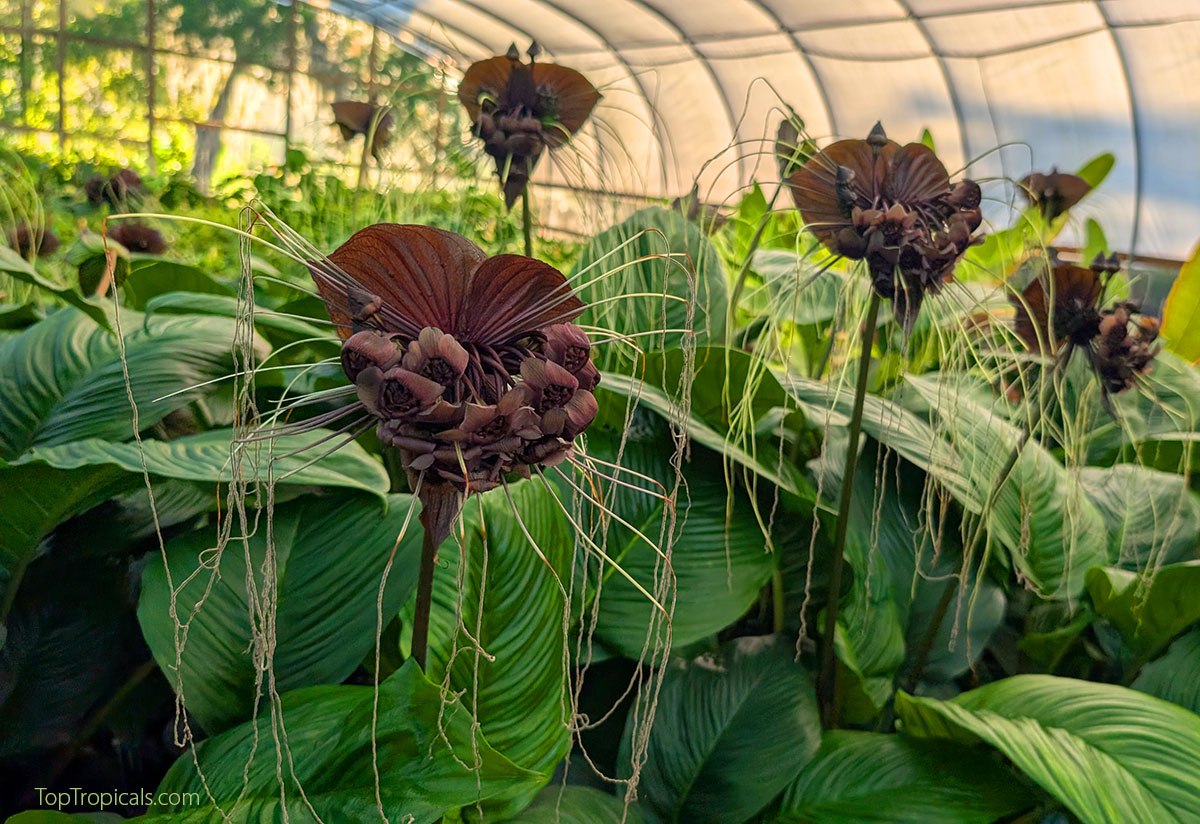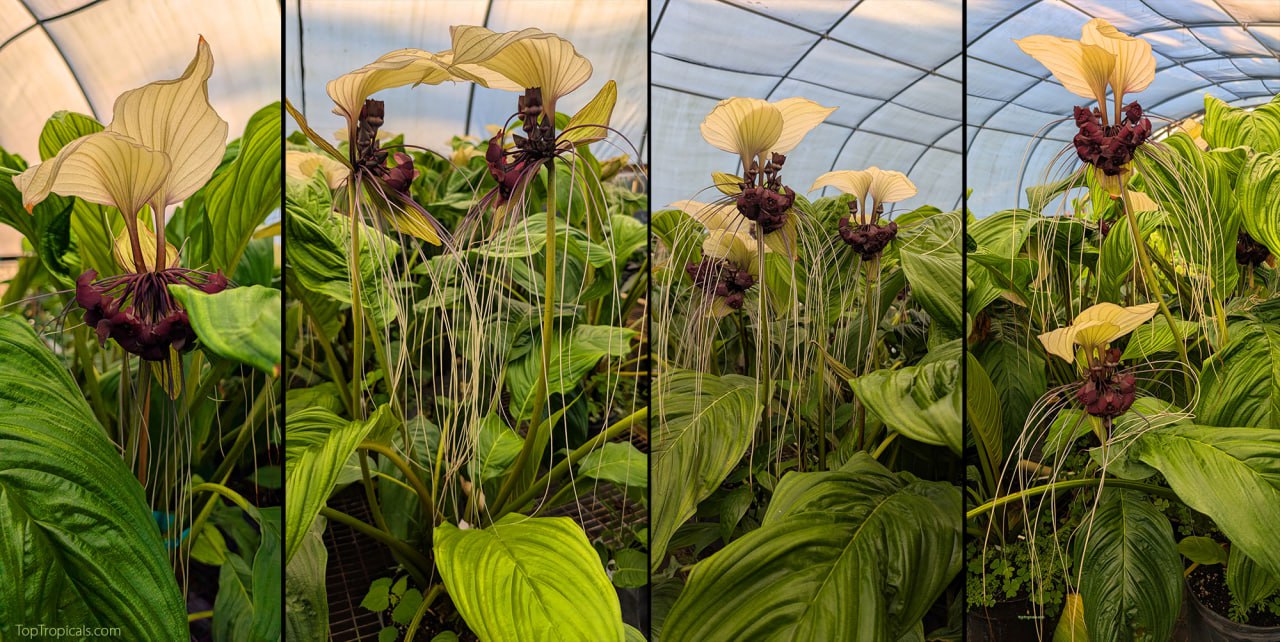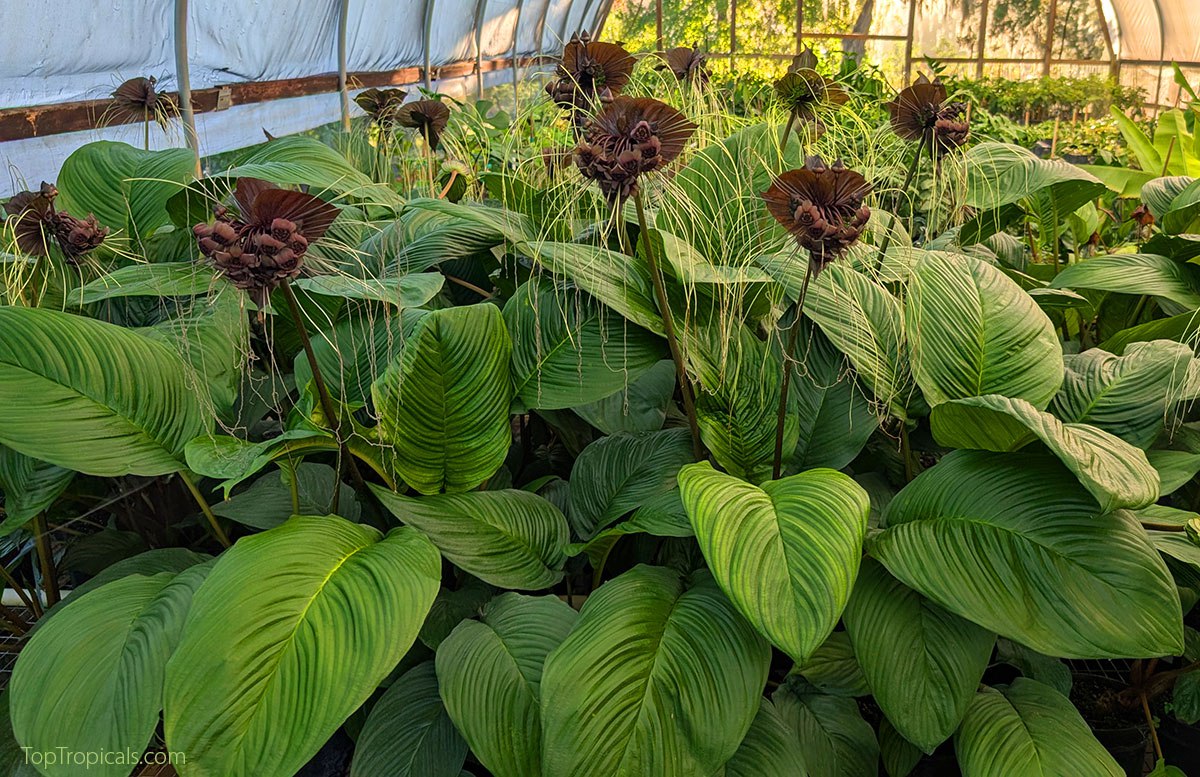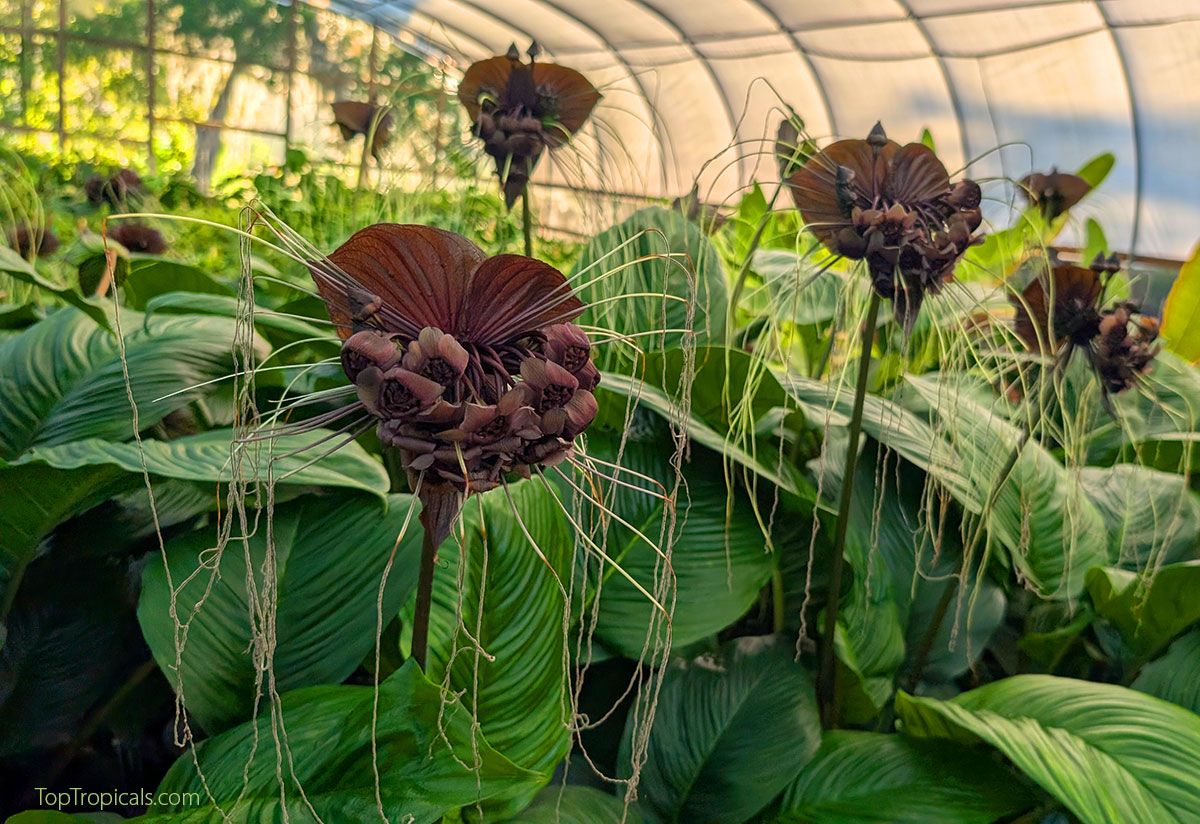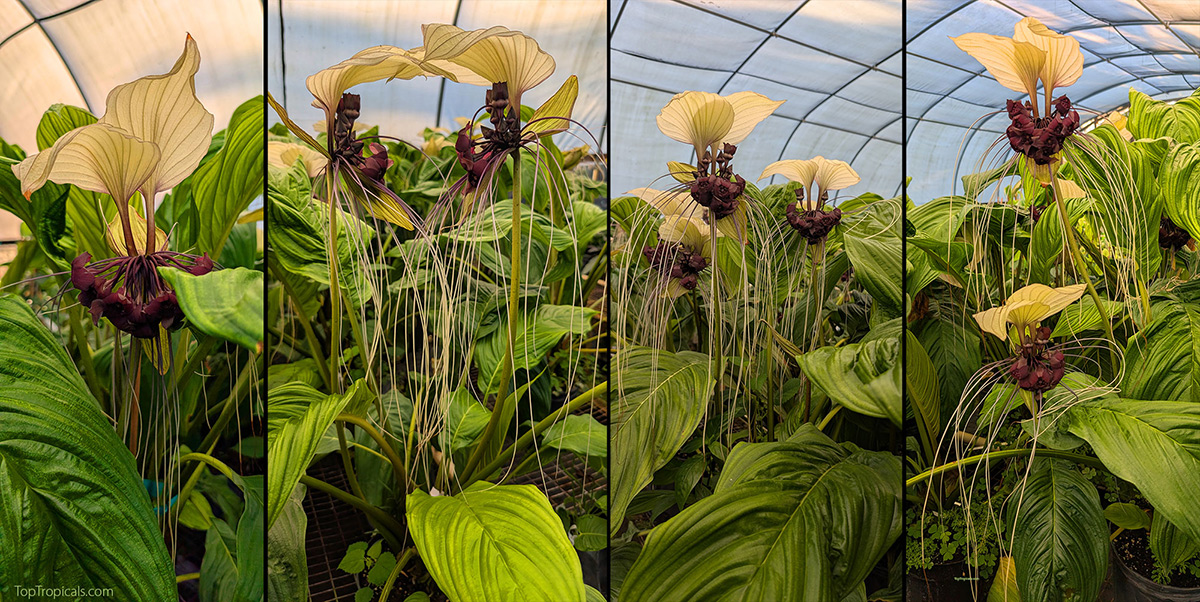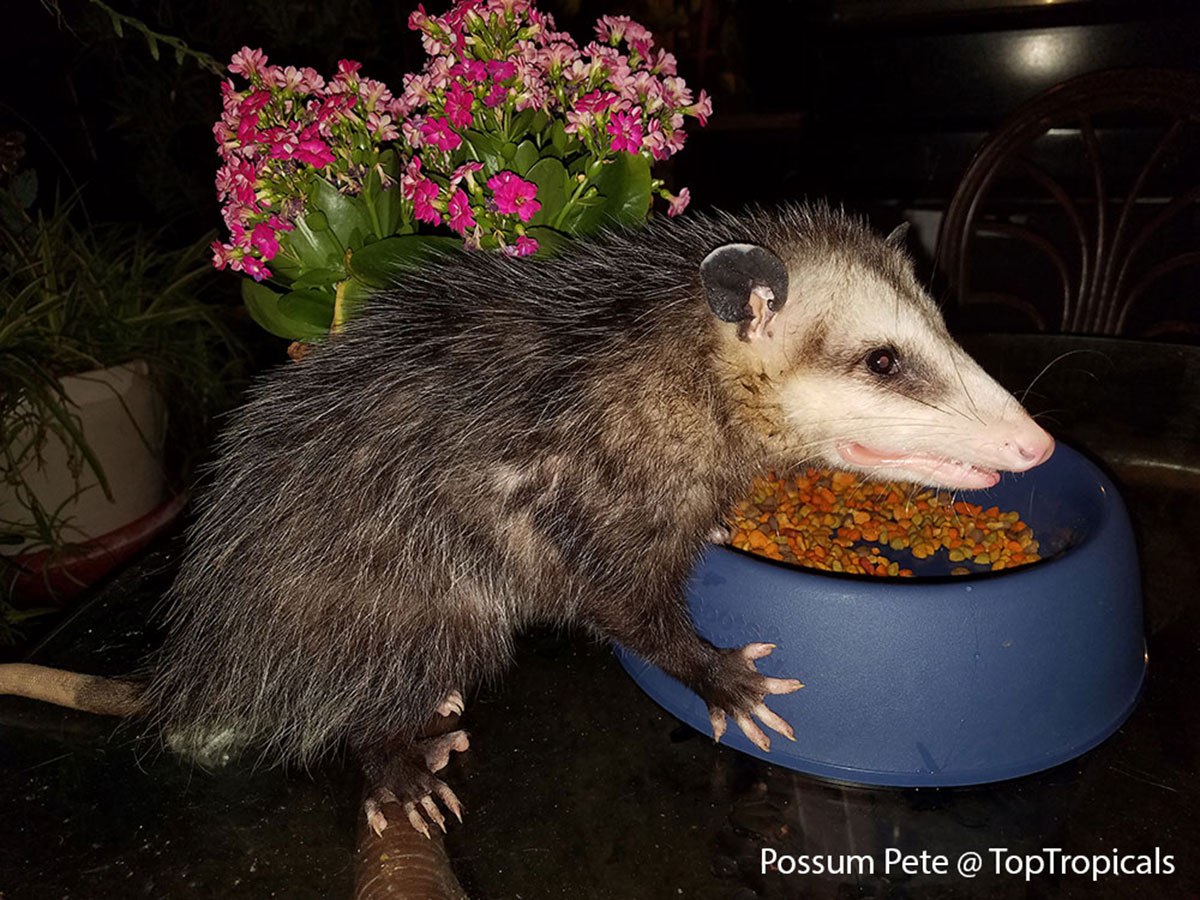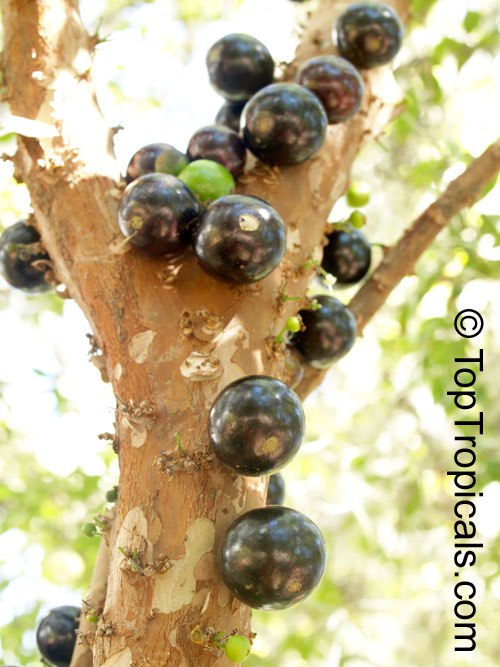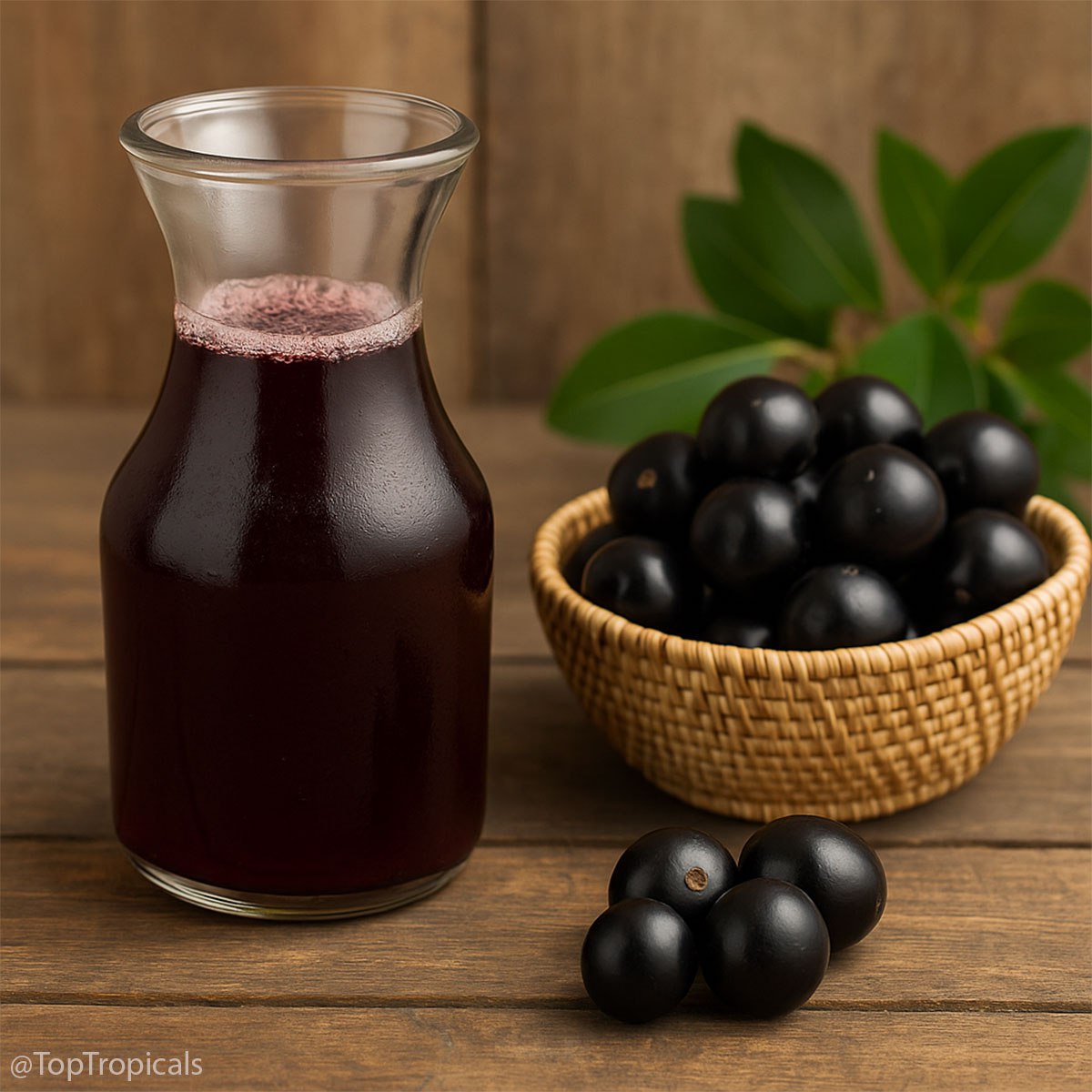Garden Blog - Top Tropicals
Cherish those with whom you can be yourself
"...Cherish those with whom you can be yourself -
without masks, without pretense, without the need for words.
Those beside whom your soul breathes freely,
where silence is not empty, but full of quiet understanding.
Guard such people carefully -
they do not come by chance.
They are gifts of fate, gentle reminders of what is true.
There are few of them in this world, only a handful,
but they are the ones who light your journey
and keep your heart alive..."
🐈📸 Cat Shura aka Lil S*t found her soulmate at TopTropicals PeopleCats.Garden.
#PeopleCats #Quotes
🟢 Join 👉 TopTropicals
Tropical fruits that help you sleep better
🌱 Looking for a natural way to fall asleep faster? Skip the pills and head for the fruit bowl. Some tropical fruits are surprisingly rich in melatonin, the hormone that tells your body it's bedtime. According to a study referenced by New York City Nutrition, eating melatonin-rich fruits about an hour before bedtime can naturally support better sleep quality.
😴 Melatonin naturally rises at night, helping you feel sleepy and cooling your body temperature. But things like blue light from phones, jet lag, or late-night stress can throw it off. That’s where certain fruits can help - they either contain melatonin or boost your body’s ability to make it.
🍒 Cherries
Both sweet and tart cherries are sleep boosters. Tart cherry juice is especially effective because it’s concentrated - studies show it can raise melatonin levels and increase total sleep time. Just go easy on added sugar. Try pairing the juice with almonds or cheese to keep your blood sugar steady before bed.
🍍Pineapple
In one study, people who ate pineapple had a big jump in melatonin levels just two hours later. It’s also loaded with vitamin C and enzymes that aid digestion, making it a nice evening snack. Have it with a bit of protein, like yogurt or nuts, to avoid a sugar spike.
🍌 Banana
Bananas don’t contain much melatonin on their own, but they help your body make it. They’re full of tryptophan and magnesium, both of which support serotonin and melatonin production. A banana before bed can calm muscles and nerves - no wonder it’s a favorite natural sleep aid.
✅ Bottom line
A small fruit snack in the evening - cherries, pineapple, or banana - can help your body settle into sleep mode naturally. Eat it about an hour before bed, keep screens dim, and let nature do the rest.
🛒 Grow your own fruit and sleep better
📚 Learn more:
- ▫️Plant a fruit tree - and breathe easier: fruit might be the surprising key to healthier lungs
- ▫️11 tropical fruits to eat instead of taking a fiber supplement
- ▫️Tropical fruit health benefits guide - what fruit and edibles can help with health issues and vitamin deficiencies, Part 1 and Part 2.
- ▫️Five best fruit trees to plant in Summer
- ▫️10 best fruit trees to grow in Florida and Southern landscapes
- ▫️Top 10 fruiting plants you'll ever need for your health benefits
#Food_Forest #Remedies #Discover
🟢 Join 👉 TopTropicals
Happy Halloween!
"If you’ve got it, haunt it." - purranormal activity detected.
🛒 Go Shopping
#PeopleCats
🟢 Join 👉 TopTropicals
Cat-Headed Spider! This is real!
Cat-Headed Spider
🙀 We spotted this spider right here in our garden.
It has a cat face on its back!
🕷Can you guess what species it might be?
#PeopleCats
🟢 Join 👉 TopTropicals
Tacca wants to be a cat! And everyone loves cats!
That’s probably the real evolutionary secret no botanist will admit! Those whiskers? Pure marketing genius from nature.
Cats had it figured out first — look mysterious, add long elegant whiskers, and everyone falls in love.
Tacca just took notes and said, “Alright, I can work with that!”
So now we have a tropical plant that looks half orchid, half bat, and just enough cat to make people stop, smile, and want one for their collection!
Tacca is also called the Bat Lily or Devil Flower. This tropical wonder grows bat-shaped wings and foot-long whiskers. The black form (Tacca chantrieri) looks straight out of a gothic dream, while the white one (Tacca nivea) is ghost-like and elegant.
Some of our plants are blooming right now in the nursery — true Halloween magic! Blooms are delicate and may not travel, but the plants are strong and will flower again soon in your care.
Tacca colors: Black, White, Green:
Tacca nivea - White Tacca
Tacca chantrieri - Black Tacca
Tacca leontopetaloides - Green Tacca
📚 Learn more:
- ▫️The mystery of the White Bat Lily - the plant with wings and whiskers
- ▫️ A flying bat with whiskers
- ▫️ The rarest Green Tacca - Tacca leontopetaloides
- ▫️ When Bat Head Devil Flower is in bloom
- ▫️ Bat Head - Devil Flower
🛒 Add Taccas - Bat Lilies to your collection
#Container_Garden #Shade_Garden #Nature_Wonders
🟢 Join 👉 TopTropicals
Date:
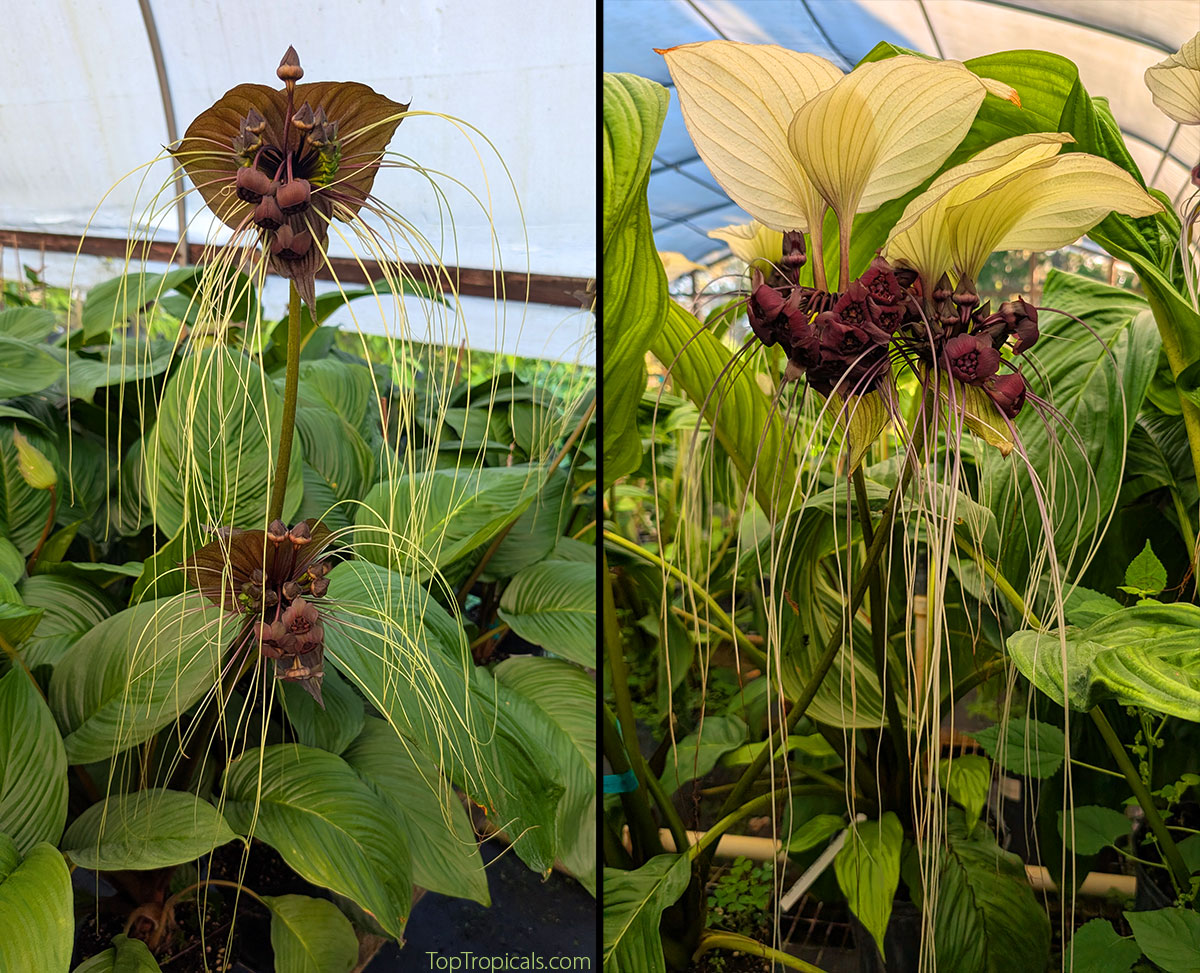 Black and White Bat Lilies (Tacca chantrieri and Tacca
nivea) side by side in bloom
Black and White Bat Lilies (Tacca chantrieri and Tacca
nivea) side by side in bloom
 How to Care for Bat Lilies
How to Care for Bat Lilies
by Top Tropicals Plant Expert Tatiana Anderson
🌞 Light
- Bright, filtered light. Morning sun or dappled shade is perfect.
- Avoid direct midday sun outdoors — it can scorch the leaves.
- Indoors, place near a bright window with sheer curtains or use a grow light.
🌡️ Temperature
- Warm and stable, ideally 70-85 F during the day.
- Protect from cold drafts or sudden chills.
- Ideally, do not let temperature drop below 45 F, although Taccas can tolerate short period of upper 30's.
💧 Watering
- Keep soil evenly moist but not soggy.
- Water when the top inch feels barely dry.
- Use lukewarm water.
- Avoid letting the pot sit in water.
💨 Humidity
- High humidity (60-80%) is key.
- Mist leaves often, use a humidity tray, or keep near a humidifier.
- In greenhouses or bathrooms with a skylight, it thrives naturally.
🌱 Soil
- Use rich, loose, well-draining mix
- Combine bark, peat, and perlite for ideal airflow around the roots.
- Best mix for growing tropical Tacca in pots - soilless potting mix Abundance . It provides perfect drainage and has a texture similar to a jungle rainforest media.
🍽️ Feeding
- During growth season (Spring through Fall), feed with Green Magic controlled release fertilizer every 6 months. For even better results, you may apply liquid fertilizer Sunshine Boosters Rubusta.
- Stop feeding dry fertilizer in cooler months when growth slows. Liquid Sunshine Boosters are safe to use with every watering, year around.
🏡 Indoor Growing
- Great for bright bathrooms, sunrooms, or any warm, humid corner.
- Rotate pot occasionally for even growth.
- Keep away from heating vents and AC drafts.
🌴 Outdoor Growing (in warm climates)
- Partial shade or filtered light under trees.
- Excellent in large containers that can be brought inside for winter.
- Shelter from heavy rain and wind.
Sunshine: "So… it’s a diva?"
Smokey: "Exactly. But take care of it - and it rewards you with wings!"
Smokey and Sunshine: "Happy Halloween!"
🎥 Watch Short Videos:
🛒 Grow your own gothic masterpiece:
Shop Bat Head Lily Tacca
Date:
👻 When plants grow wings...
🌴 Twilight in the garden. Smokey is holding a glowing pumpkin. Sunshine is sipping cocoa.
Sunshine: "Smokey, why does that plant look like it wants to fly away?"
Smokey: "That’s the Bat Lily - Tacca. It’s rare, it’s
weird, and it’s in bloom just in time for Halloween."
Sunshine: "Figures. You always find the spooky ones."
Meet the Bat Lily (Tacca)
Tacca is also called the Bat Lily or Devil Flower. This tropical wonder grows bat-shaped wings and foot-long whiskers. The black form (Tacca chantrieri) looks straight out of a gothic dream, while the white one (Tacca nivea) is ghost-like and elegant.
Some of our plants are blooming right now in the nursery — true Halloween magic! Blooms are delicate and may not travel, but the plants are strong and will flower again soon in your care.
Black Bat Lily (Tacca chantrieri) with dark maroon wings and long whiskers
White Bat Lily (Tacca nivea) in bloom with wide ivory wings
"The White Bat Lily (Tacca nivea) is bold and sculptural, with oversized
ivory wings that command attention. Its pale bracts stretch wide above
clusters
of deep maroon flowers, and long, silvery whiskers spill gracefully through
the foliage. In filtered light, the plant seems to glow from within —
elegant, crisp, and perfectly balanced between the strange and the
beautiful.
If I could pick, I’d go with the White Tacca. It feels more
architectural, more balanced — those oversized wings catch light in a
way that
shows off every vein and curve. It looks engineered by nature, almost like
an
alien design prototype that actually works.
The Black Bat Lily (Tacca chantrieri) feels alive with shadow. Its dark
maroon wings and wiry whiskers make it look like something that fluttered
out of
the jungle at dusk. The bloom’s layered structure and near-black sheen
give it a quiet power — mysterious, understated, but impossible to
ignore. But if I were designing mood lighting for a greenhouse at night, the
Black Tacca wins. It’s subtle, mysterious, like a secret only visible
up
close. Together, they’re perfect opposites — yin and yang of the
tropical underworld: white for daylight, black for moonlight." — says
Tatiana Anderson, Top Tropicals Plant Expert
Special Offer: Discounts on Rare Tacca Plants
Grow your own Bat Lilies — White or Black — at a special Halloween price!
Get 25% OFF Tacca plants with code
TACCA2025
Min order $25 (excluding S/H), valid online only, cannot be combined with other offers.
Hurry, offer expires November 03, 2025!
🎃 Storewide Halloween Sale – For Everything Beyond Tacca
Not into spooky plants? Enjoy savings on all other tropical plants across the store!
Get 15% OFF tropical plants with code
HALLOWEEN2025
Min order $100 (excluding S/H), valid online only, cannot be combined with other offers.
Hurry, offer expires November 03 2025!
👉 Collect Tacca plants:
Possum Petes night visit
"If it fits in your mouth, it’s yours." - Garfield (Jim Davis)
What do possums eat?
🐈📸 Possum Pete invited himself for a cat food dinner at TopTropicals PeopleCats.Garden.
#PeopleCats #Quotes
🟢 Join 👉 TopTropicals
Before you open a bottle of wine,
Jaboticaba (Myrciaria cauliflora)
- 🍷Jaboticaba (Myrciaria cauliflora) grows grapes right on its trunk! It's one of Brazil’s most fascinating and beloved native fruits. Its name alone sounds exotic, but wait until you see it in fruit: shiny, grape-like berries bursting straight from the bark!
- 🍷 Jaboticaba is the source of the famous Brazilian wine Vinho Tinto de Jabuticaba. The fruits are small, dark purple, with a thick skin and a sweet, melting pulp that tastes a lot like black currant. They can be eaten fresh, made into jams, or fermented into homemade wine with an incredible aroma and rich color.
- 🍷 Jaboticaba tree is slow-growing and compact, often used as a bonsai because of its small leaves and graceful shape. But patience pays off - mature trees covered in purple fruits are absolutely stunning! The fruiting habit, called cauliflory, means the fruits grow directly from the trunk and main branches, creating a truly one-of-a-kind look.
- 🍷 Jaboticaba trees can handle some cold (down to mid-20's once mature), don't mind wet rainy seasons and can be grown in containers in cooler areas. They make beautiful landscape trees and conversation starters wherever they’re planted.
- 🍷 If you've ever dreamed of making your own wine from fruit grown in your backyard, this is the tree for you. Jaboticaba isn’t just a plant - it's an experience, a piece of Brazil's culture, and a living work of art that rewards patience with magic.
🛒 Grow your own wine from Jaboticaba Tree
📚 Learn more:
- ▫️What does Blue Jaboticaba taste like?
- ▫️How Blue Jaboticaba is different from regular Jaboticaba?
- ▫️What is Jaboticaba? I like the sound of this word!
- ▫️What is Cauliflory?
🎥 From our customer: video about a mail ordered Jaboticaba tree
#Food_Forest #Nature_Wonders #Container_Garden
🟢 Join 👉 TopTropicals
Jaboticaba wine: quick-n-fun exotic recipes
A homemade tropical wine with rich berry flavor and a hint of earthiness. This traditional Brazilian recipe turns fresh Jaboticaba fruit into a deep purple wine with a unique aroma and flavor somewhere between grape and plum. Easy to make, fun to share!
🍴 Jaboticaba wine: quick-n-fun exotic recipe
Ingredients
- 4 lb fresh ripe Jaboticaba fruits (Myrciaria cauliflora)
- 2 to 3 cups granulated sugar per gallon of pulp
- 1 gallon non-chlorinated water
- 1 tsp wine yeast (optional)
- 1 cinnamon stick or a few cloves (optional)
- Clean glass fermenting jar or food-grade bucket with loose cover
Instructions
- Wash and lightly crush Jaboticaba fruits. Do not remove skins; they add flavor and color.
- Mix crushed fruit with sugar and enough water to make about one gallon of pulp. Stir until sugar dissolves.
- Cover loosely and leave in a warm place (70-80F). Stir once or twice daily. Fermentation begins within 1-2 days.
- Let ferment 5-10 days, stirring daily. When bubbling slows, strain through cheesecloth into a clean jug.
- Seal loosely with an airlock or vented cap. Rest 2-4 weeks in a cool, dark spot (60-70F).
- Carefully pour clear wine into bottles, leaving sediment behind. Cork and let age a few more weeks.
- Chill before serving. Enjoy responsibly!
Tips
- Reduce sugar to 1.5 cups per gallon for a drier wine.
- Add more sugar after first fermentation for a sweeter dessert wine.
- Add a spoon of honey for a floral note.
- Save the skins to make Jaboticaba syrup or jam.
Grow your own exotic Jaboticaba fruit
📚 Learn more:
- ▫️What does Blue Jaboticaba taste like?
- ▫️How Blue Jaboticaba is different from regular Jaboticaba?
- ▫️What is Jaboticaba? I like the sound of this word!
#Food_Forest #Recipes
🟢 Join 👉 TopTropicals



